Noble Rogues
To the countryside
Summer of 1941
I was told I would enjoy the countryside, because village cats always get a bowl of milk, and
fields and pantries are teeming with mice - just go and catch them. But this place is not a real
village - just a farmstead. The wife of the maid’s brother began grumbling as soon as she saw
us: “We have no place for you here, why did you leave the city, did the rivers of gold dry out?
And why did you bring this creature, don’t we have enough cats already?” There were plenty of
cats, indeed - I had to fight with them and lost half an ear in the battle, but in the end I
settled down and got a bowl of milk every morning and evening when the maid came back from milking
the cows.
At first I was scared to go out into the yard because of the growling and barking dog, but later I realized that this shaggy creature was tied to a chain and if you weren’t stupid and didn’t get any closer than the chain allowed, he couldn’t really touch you, only bark until he lost his voice, the old hysteric - I had so much fun teasing him.
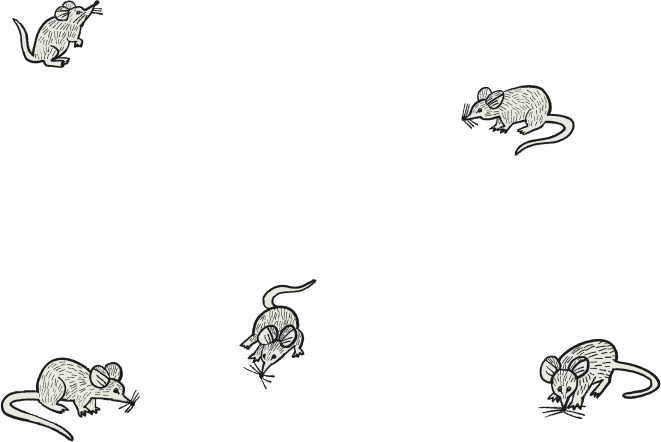


Come winter, I was allowed into the room with other cats, because “dogs serve for food and cats for warmth,” as the brother’s wife put it. I didn’t like it: am I some servant to serve? I'm a cat! I tried to follow the former maid everywhere and got acquainted with the order of the town near the farmstead: there was a noisy carding mill, a bakery smelling of fresh buns, four butcheries, but the maid didn’t buy any meat or buns - those are Jewish, you nitwit, I rather bake buns at home myself and my brother slaughters the chicken for lunch with his own hands.

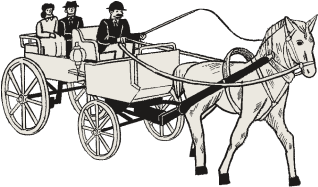
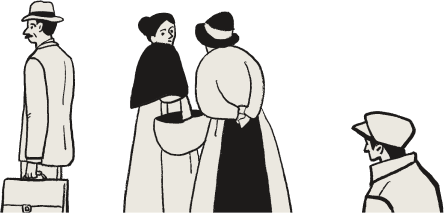

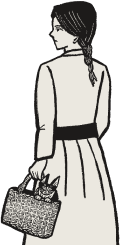
However, during Lent, we went to buy herring almost every day - because only Jews sell herring, Lithuanians don’t know how to catch it. We walked through the town, passing the tanner’s shop, the ironmonger’s with shiny chains in the shop window, the hatter’s, the fresh-smelling pickled cucumber seller’s house, and greeted the cheerfully whistling shoemaker - this part of town with its smells and sounds reminded me of Kaunas.
But you always had to hurry back home, to the farmstead, where the grumpy brother’s wife would complain that we, the townsfolk, eat her out of her home.
Those complaints got a bit softer after the first year, as both of us, the maid and I, did our best to please her. She milked the cows, fed the chickens, collected the eggs, separated the milk and spun the butter we brought to the town market. I caught mice, brought them home and laid them down at the brother's wife’s feet.
We left Kaunas in early autumn. After wintering and finishing the spring work, we had summer. Rumors have spread that white-armbands took power in our town of Vaškai. That all Jews had to wear a yellow armband over their left elbow or they would be arrested. White armbands, yellow armbands - people’s games can be so bizarre.
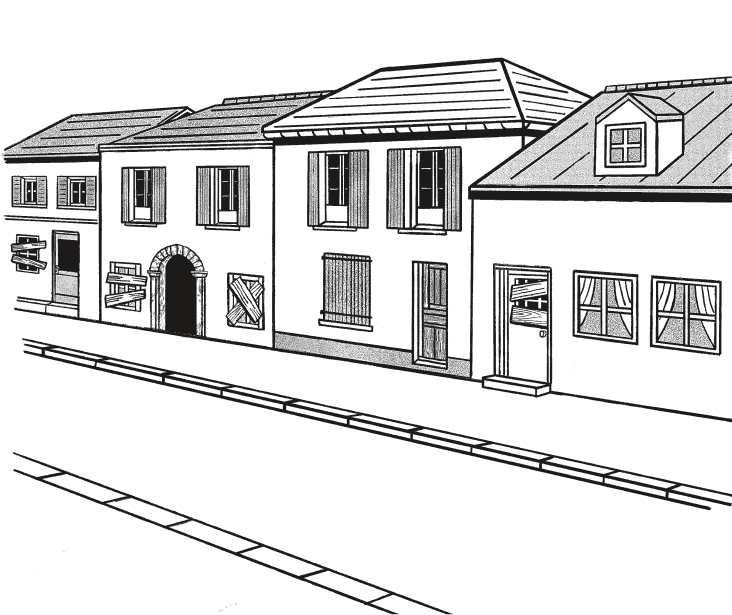

The next evening, brother brought home a radio, “Jews are now forbidden to own these,” so the shoemaker gave him it in exchange for a chicken. When the maid and I went to the town market as usual, there were no more buns, all the shop windows were covered with curtains and closed with shutters. Only in the market, as usually, people were bustling and chattering, sharing the news: did you hear that you must sit in the darkness at home from evening till morning, otherwise they can shoot you? Did you notice all the shops are closed? The Jews are forbidden to trade, the end of the world! Just as the maid placed a lump of butter on the counter for sale, a flushed and disheveled buyer grabbed the butter, dropped the money and ran away. “You moron, you sold your butter to a Jew, now they will shoot you!” whispered the other butter and cheese sellers. “If you want to help them and make money, you can carefully take the goods to their home,” the brother’s wife told us when we came back.
How much time passed? I don’t remember. We are sitting in the dark by the candle, the windows are covered so that the light wouldn’t penetrate outside. We keep silent, only the baby in the cradle cries quietly like a kitten. Where did the brother's wife get the baby from? “God sent him to me,” she says. “I prayed for so many years that God would give me children, and finally he listened to my prayers,” she says. She wouldn’t stop talking and we will all soon believe that indeed she gave birth to that baby, and it wasn’t the maid who secretly took some cheese and eggs to the Jews for sale, carrying back a little child in a basket.

All the young Jews of Vaškai were arrested and put into prison. The space was scarce, so shortly after that the men were driven to the barn in Daičiūnai village. Their mothers and sisters went to the village to bring them food, and it seemed that the misunderstanding would soon end. Only one night all of them were taken out to the Grūžiai forest and shot.
So we gathered, because their women came back home crying, our hearts burst seeing them - collapsing, rising on their feet, turning back - the town had to tumble down from their moans. But that was just the beginning.
After they killed the young men, they gathered all the others, the old and the little ones, telling the women to take every precious thing they owned - for they will be resettled.
A Jewish ghetto was set up in Pasvalys, the white-armbands fenced a few streets by the river and forced the Jews inside - the remnants of the town of Vaškai, several dozens families from Saločiai town brought in massive hay carts, about three hundred people from Joniškėlis brought by a narrow-gauge train. Their belongings were heaped in a barn by the station
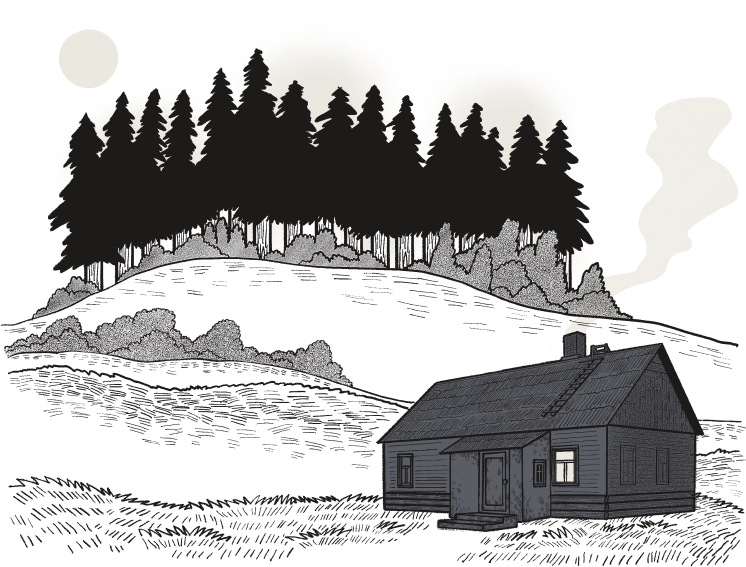
Whoever wants to buy pretty tureens, gilded porcelain cups, grandfather clocks: come and buy, hurry up, the owners no longer need those items, they don’t need no porcelain cups in the ghetto, and the ghetto itself takes up too much space, so in less than a month, everyone is gathered in the synagogue and declared that all should move to the village of Papyvesiai, where a labor camp would be set up, where everyone would be able to work for that bite of bread and a potato peel, so they wouldn’t be fed for free.
But... Papyvesiai village is on the other side? Why are they moving towards Žadeikiai? Why are they going into the forest? Why are two giant pits dug there? Why do they separate men from women, why, if you are too slow to obey their orders to undress, they just tear off the clothes of you, why do they drive naked people on a bridge over the pit, why shots, why Russian prisoners pouring lime, why people on the bridge again, and shots again, and again…
The uncle of the brother's wife lived in the Žadeikiai forest. It was forbidden to leave the house for two days. The forest echoed with shots and moans; it was impossible to eat during the day or to sleep at night. Drunken men with rifles crashed into the house after midnight, demanding more vodka, laughing:
Only a few days later, the uncle dared to leave the farmhouse and go into the forest. Swarms of flies, the blood foaming from under the ground, darkly.
“Why are you telling this!” - cries the maid, “why are you telling us such things?!” - cries the brother’s wife. And the maid’s brother, who has just brought the uncle over for a visit, takes a shovel, then, after some thought, a kerosene lamp, and leaves.
NEXT CHAPTER